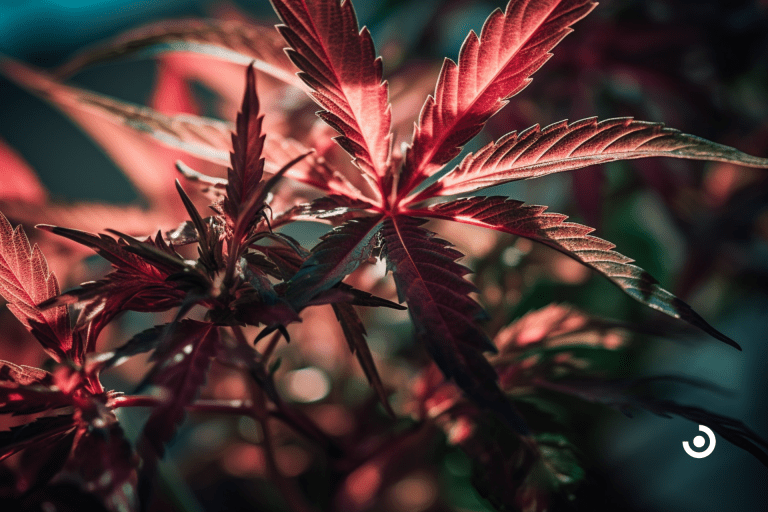Zieve’s Syndrome
Can medical cannabis help patients suffering from symptoms of Zieve’s Syndrome? Find out below.
What is Zieve’s Syndrome?
Zieve syndrome is a triad of hemolytic anemia, cholestatic jaundice, and transient hyperlipidemia due to alcohol use disorder. Many physicians do not study or recognize the syndrome, and it is likely underreported. There are approximately 200 published cases since its discovery by Leslie Zieve in 1958. Patients range in age from 20 to 60 years, and there isn’t a clear difference in incidence by sex or location.
What is alcoholism?
Alcohol use disorder (AUD) or Alcoholism is defined as frequent alcohol use that involves problems controlling how much you are drinking, becoming borderline obsessed with using alcohol, and continuing to use alcohol even when it has become a problem. AUD consists of drinking with the intention of intoxication or withdrawal symptoms when you decrease or stop use.
Unhealthy alcohol use significantly risks your health, relationships, jobs, and safety. Alcoholism can range from mild to severe and lead to serious issues, so early detection and treatment are essential.
What are the symptoms?
Mild to severe signs and symptoms of alcoholism may include:
- Being unable to apply limits to your alcohol consumption
- Unsuccessfully attempting to cut back on how much you drink.
- Spending a lot of time buying, drinking, or recovering from an alcohol-induced hangover
- Feeling an intense craving to drink alcohol.
- Failing to fulfill social obligations at work, school, or home due to alcohol use and continuing to drink anyways
- Giving up or reducing social activities or hobbies to use alcohol
- Using alcohol while driving
- Developing a tolerance to alcohol
- Experiencing withdrawal symptoms (nausea, sweating, shaking) when you don’t drink alcohol
What are the causes?
The exact reasons for the development of alcoholism are unknown; however, scientists have narrowed it down to a combination of one or more of the following:
- Genetics
- Early childhood trauma
- Emotional Pain
- Financial Hardships
People are more likely to develop alcoholism if they:
- Consume alcohol often or in large amounts, or
- Start drinking at a young age
- Experienced physical or sexual abuse.
- Family history of alcohol use disorder.
- Have mental health issues, such as:
- significant grief or loss
- anxiety
- depression
- eating disorders
- post-traumatic stress disorder
Stages of Alcohol Use Disorder
There are four primary stages of alcohol abuse that lead to severe Alcohol Use Disorder symptoms.
- At-risk: You drink socially to relieve stress or anxiety and may start to develop an alcohol tolerance.
- Early AUD: You have progressed to blackouts, drinking alone or secretly, and thinking about alcohol when not using.
- Mid-stage Alcoholism: Your alcohol use is uncontrollable and causes daily problems. During this stage, organ damage can typically be seen on lab tests and scans.
- End-stage Alcoholism: Drinking is the primary focus of your life, excluding food, relationships, health, and well-being. Despair, significant organ damage, and death are close by without treatment.
Alcohol Use Disorder (AUD) Statistics
- About 14.5 (1 in 10) million Americans 12 years or older have an alcohol use disorder.
- 140,557 Americans die from the effects of alcohol in an average year.
- Over half of Americans increased their alcohol consumption during COVID-19 lockdowns.
- Approximately 3 million people worldwide die yearly as a result of alcohol abuse.
- Alcohol-related deaths account for at least 5.3% (some estimate as high as 6.0%) of the world’s deaths.
- Alcohol causes 13.5% of deaths among 20- to 39-year-olds.
- Men are three times as likely as women to die due to alcohol abuse.
- The World Health Organization (WHO) has determined excessive alcohol use is responsible for 7.1 percent of diseases among males and 2.2% among females.
- Americans lose over 3.59 million years of potential life due to excessive drinking.
Can medical cannabis help with recovery?
Clinical data from a recent study by the Recovery Research Institute concluded that:
This study showed that CBD, compared to placebo, helped decrease the cue-induced craving and anxiety of individuals with heroin use disorder. Many people with opioid use disorders seek alternative treatments to curb cravings and reduce stress and are reluctant to try agonist treatments such as methadone or suboxone.
This study suggests individuals with drug addiction may benefit from EPIDIOLEX, the FDA-approved CBD addiction medicine. Still, more extensive studies are needed to confirm this as clinical evidence. Individuals seeking to use cannabis, in general, for opioid addiction should proceed cautiously, as with any pharmaceutical drug.
Can medical marijuana help?
Alcohol Use Disorder, Zieve’s, withdrawals, and recovery can all be painful processes. Medical marijuana is known to help alleviate chronic pain, fatigue, nausea, and more.
Scientific evidence shows that certain cannabinoids (particularly CBD) have the potential to help with alcohol addiction recovery and withdrawal symptoms. Although, it’s essential to remember that THC and other psychoactive cannabinoids may have adverse effects, so check with a trusted health professional before changing your treatment plan.
Last Updated: June 14, 2024
Get Your Medical Card
Connect with a licensed physician online in minutes
Table of Contents
Keep Reading
-
How To Grow and Maintain a Cannabis Bonsai
Discover the art of growing and maintaining a stunning cannabis bonsai with our expert tips! Learn how to cultivate this miniature masterpiece and create your own bonsai marijuana tree. Click here to unlock the secrets now!
-
Laced Cannabis: What It Is And How To Avoid It
Protect yourself from the hidden dangers of laced cannabis! Learn how to avoid it and stay safe. Don’t risk it – read now for crucial knowledge and peace of mind.
-
Using Cannabis And Exercise For Stress Relief
Looking for natural stress relief? Find out how cannabis and exercise can work together to help you unwind. Click here to learn more about the ultimate stress-busting combo!



